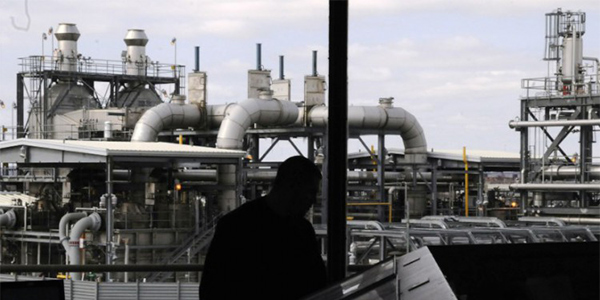By Michael Kuser
FERC last week voted 2-1 to approve ISO-NE’s cost-of-service agreement with Exelon for its Mystic Generating Station Units 8 and 9, including payments to the company’s Distrigas LNG facility. It also ordered a paper hearing on the issue of return on equity for the plants.
FERC Chairman Neil Chatterjee and Commissioner Cheryl LaFleur approved the order — issued after the commission’s open meeting Thursday — with Commissioner Richard Glick dissenting (ER18-1639). The agreement becomes effective June 1, 2022.
The RTO sought the agreement after Exelon said in March that it would retire the 2,274-MW plant when its capacity supply obligations expire on May 31, 2022 (ER18-1509).
The commission tentatively accepted the agreement in July while ordering an expedited hearing on unresolved issues. (See FERC Advances Mystic Cost-of-Service Agreement.)
The agreement would allow the gas-fired units in Massachusetts an annual fixed revenue requirement of almost $219 million for capacity commitment period 2022/23 and nearly $187 million for 2023/24. But the commission found the information Exelon provided to support those figures insufficient and ordered the company to submit a compliance filing within 60 days of the order.
In the most recent order, the commission directed Mystic to adopt Exelon’s capital structure for ratemaking purposes, include an amortization of excess deferred income taxes and amend the agreement to state that it will recover 91% of the costs of Distrigas as Mystic fuel costs, determining that other New England beneficiaries of the LNG terminal should bear some of its operational costs.
Glick’s Dissent
In his dissent, Glick argued the commission “cannot and should not use its authority over wholesale sales of electricity to bail out an LNG import facility. … The commission concludes that it can use the [Federal Power Act] to bail out an LNG import facility simply because that LNG import facility has an undefined and unexplained ‘extremely close relationship’ to the Mystic facility.”
The commission is attempting to regulate the costs incurred and sales made by a non-jurisdictional facility, he said.
“A more reasonable construction of the commission’s jurisdiction would be to limit its reach to the entities that can or actually do participate directly in the wholesale market for electricity,” he said.
“The jurisdictional puzzle in which the commission now finds itself only reinforces the fundamental mistake that the commission made in rushing to seize control of the debate over fuel security in New England and dictate a particular outcome. That outcome, ‘individual, ad hoc contracts with particular resources whose retirement might, under the most conservative assumptions, create a fuel security concern,’ is no way to address a region’s long-term fuel security,” Glick said, quoting from his previous dissent in the commission’s July tentative acceptance of the agreement.
FERC on Dec. 3 approved ISO-NE’s interim proposal to use an out-of-market mechanism to address concerns about fuel security (ER18-2364). (See ISO-NE Fuel Security Measures Approved.) The RTO’s Tariff had previously only allowed cost-of-service agreements to respond to local transmission security issues, with the interim proposal developed in response to FERC’s July denial of a request for waiver to allow for the Mystic agreement. (See FERC Denies ISO-NE Mystic Waiver, Orders Tariff Changes.)



